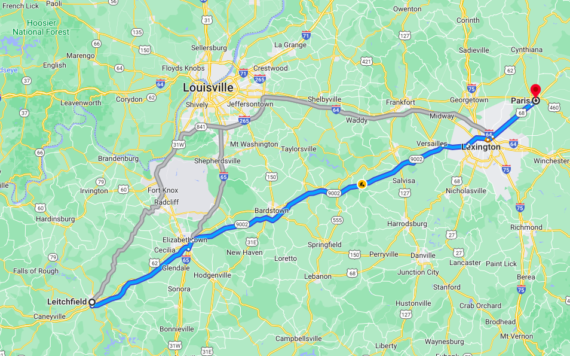Tom and George are both healthy. Tom, being slightly taller and more athletic than George, has a longer stride. With each full step, Tom moves slightly more than a meter, about 10% more. George, with his shorter stride falls a bit short of a meter, about 5% short.
If both are called upon to walk to a destination 5 kilometres away, which of the two will need the fewest steps and therefore be more likely to arrive first?
Our instinctive response is “Tom, of course, for he has the longer stride. He will need only 4546 strides to reach the destination. George will need 5264 strides to reach the destination.” But this response overlooks the possibilities of other variables.






Other variables
The destination may be 5 kilometres away, but we have not yet considered the possibility of obstacles.
During a recent visit to the States, I used the GPS on my father-in-law’s phone to get directions. Later, when borrowing a friend’s car, I was able to use a GPS built into the car. While they could be helpful at times, both were troublesome on occasion. The GPS on my friend’s car seemed to be set to take the shortest possible distance – including making use of narrow gravel roads between corn fields. The phone-based GPS erred in the other direction, sticking to major highways even when those highways took us on a very indirect route.
If, in the example above, Tom chooses a route that happens to be plagued with obstacles, he could end up taking more strides and more time than George.
There would also be the possibility of a directional mistake. Tom might have the longer stride, but if he begins to travel in the wrong direction he will take more, not fewer, steps.
If a driver in Leitchfield, Kentucky is asked to deliver a truckload of pumpkins to “Paris,” he might rightfully conclude that the boss was not expecting him to drive to France. But should he go 175 miles to the southwest, to Paris, Tennessee, or should he drive 130 miles to the northeast, to Paris, Kentucky? Or should he head 229 miles north, to Paris, Illinois, or even 400 miles west to Paris, Missouri? In this case the driver would do well to get some clarification before beginning his journey.
If three drivers all started from Leitchfield to Paris at once, which would arrive at the desired destination first? It might not be the one who drove the fastest. It is likely to be the one who took the time to ascertain which “Paris” was the desired destination.
Fools rush in
I recall a chapel talk made by the Dean at Oklahoma Christian in 1977. Some students who were not doing well in their classes had made the excuse that they were too busy with ‘church work’ to give attention to their studies. He had been an English Literature professor. He referred to a female character in a 19th century novel. According to his description, this woman was always so busy supporting various social ’causes’ that she neglected her own family. The result was chaos within her family and ultimately harm to society.
Dr McBride then called attention to the fact that the business of students is to study, and thereby prepare themselves for years of service. Of course, we might and should find ways of being useful while engaged in studies. But our main task, as students, was to master our subjects. Rushing ahead to serve, when we did not yet have a clear understanding of how we were to serve effectively, was not the right way to honour the Lord.
Looking back after all these years, I have no doubt that most of those who were faithful as students have also been faithful in their various fields of service. Likewise, I suspect that those who skimped on their studies when they were students have been ineffective in their area of service. In the cases I know firsthand, this is certainly true.
Measuring our stride
The most important measure is not length of stride but direction of stride. A short stride in the right direction is better than a long stride in any other direction.
Therefore, let us do good work rather than fast work. Let us plan our course rather than rushing into it. Let us give more attention to our direction than to our speed.
“Remind them of these things, and charge them before God not to quarrel about words, which does no good, but only ruins the hearers. 15Do your best to present yourself to God as one approved, a worker who has no need to be ashamed, rightly handling the word of truth. 16But avoid irreverent babble, for it will lead people into more and more ungodliness (2 Tim 2:14-16).

